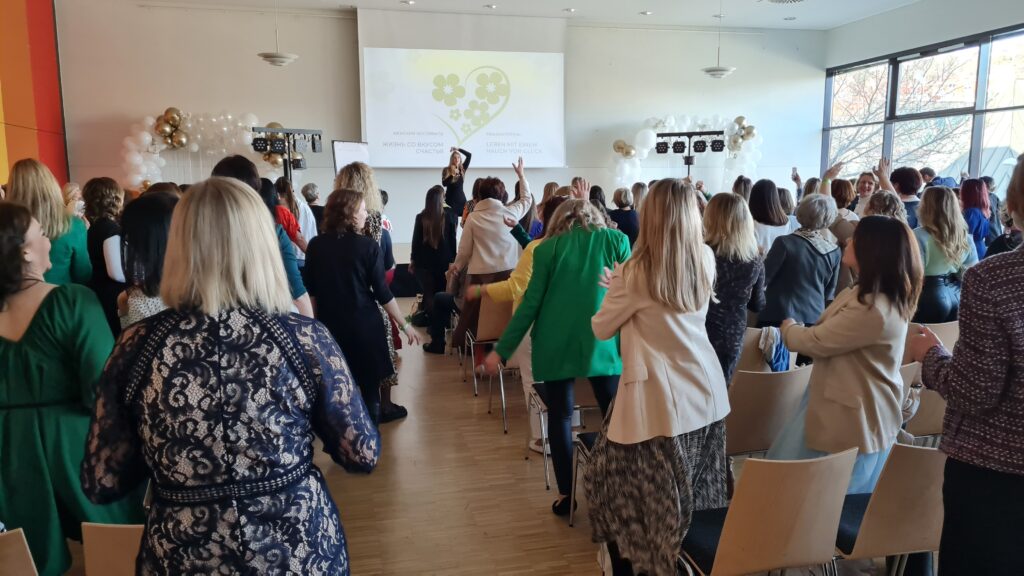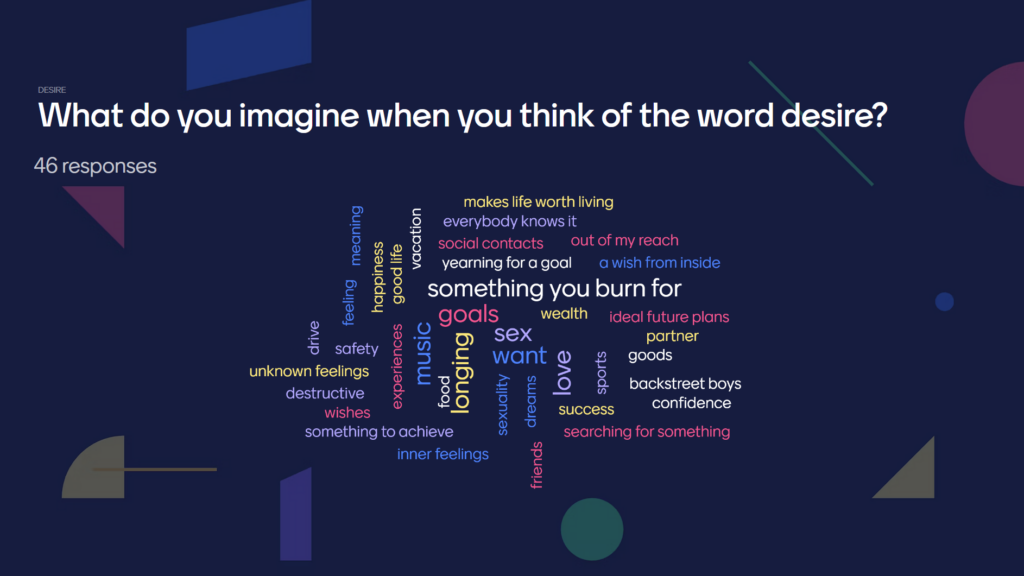BA-Seminar “Desire and Self in Transnational Contexts” (SoSe 2024)
Dr. Alina Jašina-Schäfer
As part of my research into the migration and work experiences of people from the former Soviet Union in Germany, I attended a Russian-speaking Women’s Festival in Stuttgart in both 2023 and 2024. The 2024 festival began with Tina Turner’s song “The Best”, setting a lively tone as women in colourful dresses stood up, raised their hands, and danced. An organizer shouted from the stage: “You are the best! You came here to become better, to understand what you want, and to overcome what you ought to, what is expected of you”. The women I spoke to had different expectations but shared a common hope to move forward in their lives, to take a step towards overcoming the feeling of being lost. They attended various lectures and visited thematic stands that were available in abundance. Overall, the festival provided women a platform to discuss struggles and defeats, as well as explore ways to stay connected to life and form new social connections in their unique ways. Amidst the ongoing disco, women indulged in beauty makeovers, exchanged ideas on success and independence, and embarked on journeys to understand their desires following migration and the so-called “reset” (obnulenie), as one woman put it.

My wish to design the course “Desire and Self in Transnational Contexts” largely stems from these research experiences. Together with my students, I sought to explore what kind of journey “desire” is, what paths it takes and what factors shape it. While examining broader contexts, we continually circled back to our own perceptions and how they evolved throughout the course.

As the first seminar session clearly highlighted, there are numerous words we associate with “desire” – our goals, feelings, sense of belonging, and self. Indeed, this elusive concept has inspired countless books, songs and films, capturing the imagination of artists and audiences alike. In some lyrics it manifests as an enchantment that keeps us from eating and sleeping, as in the song “Under Your Spell” by Desire. Other times, it appears as an insatiable yearning for “more and more”, as expressed in “Freed From Desire” by Gala.
These questions have also fascinated philosophers for centuries, deeply influencing our current views on desire. For instance, Plato (Symposium, 385–370 BC) described desire as a “negative principle of human life”, suggesting that our longings arise from a sense of lack and our attempts to fill that void. Hegel (The Phenomenology of Spirit, 1806) saw desire as a “mode of being” that involves a constant effort to overcome differences, framing it as a relational process in our quest for recognition. Foucault (The History of Sexuality, 1987), on the other hand, argued that desire stems from power relations and social hierarchies that shape us as desiring beings. These varied perspectives show that desire is more than just wanting something; it is a powerful force that influences who we are and how we engage with the world.
Throughout this course, my students and I thus explored how desire is embedded in networks of power and shaped by relational notions of the self and our quest for recognition. We examined how desire is organised and reshaped around concepts of domination, how it is influenced by various temporalities and spatial experiences, and how it is affected by often promising yet misleading images of the “good life”.
At the end of the course, students took a hands-on approach to explore the theme of desire by creating an art piece or spoken word presentation that expressed their hopes, aspirations, or yearnings. In their work, they contextualised their creations within broader historical and socio-political frameworks, articulating how these relate to the seminar’s themes. Some students focused on nostalgic feelings for the past and their complex connections to the present and future, while others discussed how their hobbies bring them peace in an unsettling world and foster a sense of belonging and recognition among like-minded individuals. Below you will find four examples that were collectively selected in class.
• Benjamin Eppert’s “Desire Avenue” explores how desire evolves throughout a lifetime, taking on different meanings.
• Estrella Padalina delves into her involvement in the K-pop fandom, highlighting its unique hierarchies and spaces for belonging.
• Nathalie Leßmöllmann provides a glimpse into her passion for re-creating historical clothing, an endeavour that allows her to relive and reinterpret past eras.
• Paula Neunzig’s short story “The Journey is the Reward” examines Berlant's concept of “cruel optimism” in relation to the elusive “good life” and its impact on our daily lives.


